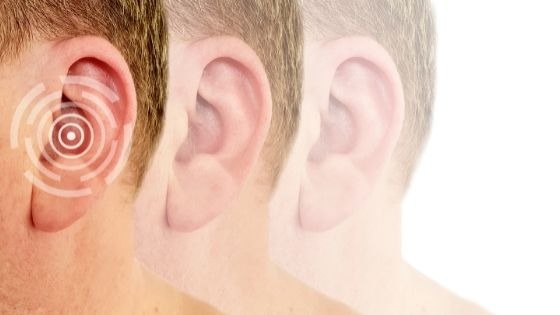According to the Centers for Disease Control and Prevention (CDC), 15% of American adults have hearing loss troubles. Auditory impairments occur when one or several ear parts are not working well. If you have ear-related issues, you will experience several shifts in your daily life. Routine tasks might seem more difficult due to the limited use of one of your senses. You might also notice some changes in how you talk to other people.


Medical experts can provide you with knowledge and solutions for your auditory problems. You can ask your nearest hearing clinic in Kentucky for more in-depth details. But if you need the basics, read on to learn about the different types of hearing loss and their common causes. Discover possible treatments for these conditions to help you lead a comfortable life.
Types of Hearing Loss
For every 1,000 babies, two or three are born with an auditory problem with one or both ears. As these children grow, genetic causes often lead to gradual or abrupt hearing loss. One in eight Americans ages 12 and up actually experience hearing loss on both ears.
These statistics show how many people have auditory troubles. But, every person doesn’t share the same ear-related problems. Continue reading to understand the different types of hearing loss.
Sensorineural Hearing Loss
This type is the most common hearing loss condition. Aging, acoustic trauma, or other factors are the usual causes of this variant. Sensorineural hearing loss happens through inner ear damage, particularly on the ear nerves and hair cells. The disruption affects the ear’s pathways to the brain, which prohibits auditory effectiveness. Doctors prescribe hearing aids to help patients cope with sensorineural hearing loss.
Conductive Hearing Loss
Blockages in the middle or outer ear often lead to conductive hearing loss. These obstructions may include earwax, fluids, tumors, or swelling inside the ears. This internal buildup blocks your ears and prevents sound from registering well. Luckily, conductive hearing loss is not permanent. You can solve this auditory issue with doctor-prescribed medicine or surgical solutions.
Mixed Hearing Loss
Sensorineural and conductive hearing loss co-occurs for some people. The outer or middle ear prevents sound, while the inner ear cannot register well with the brain. The combination of ear problems means more severe auditory troubles. Ideal treatments for mixed hearing loss include hearing aids, cochlear implants, and surgery.
Auditory Neuropathy Spectrum Disorder (ANSD)
If you hear words but have trouble understanding them, you may have ANSD. With this condition, your ear detects sound but cannot send it properly to your brain. Messages might seem jumbled when you hear them, and they make communication difficult.
Auditory neuropathy spectrum disorder affects infants, children, and adults. People with ANSD can develop language and communication skills through non-invasive medical treatments. These solutions include therapy, visual communication techniques, and medical devices.
Common Causes of Hearing Loss
There are many reasons for auditory impairment. These factors can be either natural elements or foreign agents. Here are some of the common causes of hearing loss, based on global statistics:
- Genetics
- Aging
- Ear Injury
- Wax Buildup
- Ear Canal Infection
- Eardrum Perforation
- Dislocation of the Middle Ear Bones
- Loud Noise Exposure
- Head Trauma
- Acoustic Tumors or Abnormal Growth
- Foreign Objects Inside the Ear
- High Fever
- Viral Infections like Mumps, Measles, Shingles, and Meningitis
- Diseases like Diabetes, Stroke, Hypertension, Obesity, and Meniere’s Disease
- Ototoxic Medicine
- Smoking
Treatments for Hearing Loss
There are different remedies for different types of hearing loss, as previously mentioned. The following list elaborates on the best treatment options for auditory impairment.
Hearing Aids
People with inner ear damage would find hearing aids effective for auditory loss. The three-part tool includes a microphone, an amplifier, and a speaker. It converts and amplifies sounds to help users communicate effectively. Some hearing aids also provide clarity by reducing interference from background noise. Open-fit hearing aids are popular nowadays for their more natural hearing experience.
Cochlear Implants
This medical solution is ideal for the deaf or people who are severely hard of hearing. A cochlear implant bypasses damaged ear parts to stimulate the auditory nerve. This device doesn’t restore your normal hearing. Instead, it allows you to comprehend speech and be aware of your environment.
A cochlear implant requires a surgical procedure for implantation. It includes a microphone, speech processor, transmitter, receiver, and an electrode array.
Stapedectomy
Surgery is a good avenue for hearing loss that stems from defective ear parts. One condition, otosclerosis, occurs when the smallest ear bone becomes affixed in place. This bone, called the stapes, blocks the middle ear and causes auditory difficulties. Stapedectomy removes the bone and replaces it with a prosthesis for clearer hearing.
Contact Bluegrass Hearing Clinic Kentucky
If you’re experiencing ear-related troubles, talk to trusted and certified doctors for help. Schedule a consultation with your local hearing clinic in Kentucky for any auditory problems. Find out what medical issue you have and learn which solution suits your condition.









